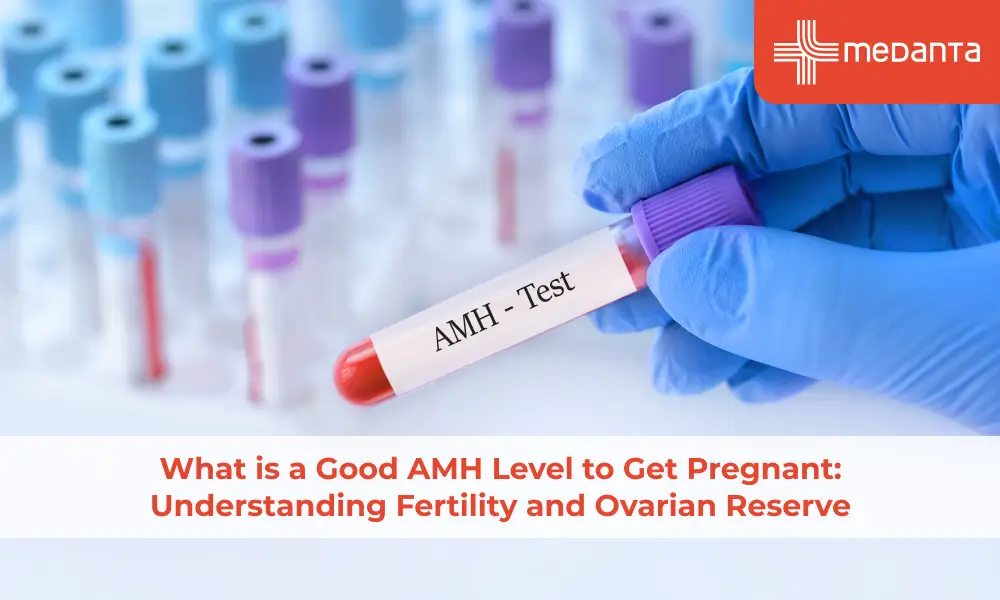Early Detection of Birth Defects: How Foetal Medicine Plays a Crucial Role

You are extremely excited and nervous to welcome your baby to your life. But along with immense joy, pregnancy can come with anxiety, especially when there are concerns about your baby's health.
Thanks to advancements in the medical science field, healthcare professionals can facilitate early detection and intervention for many potential health issues, including birth defects. When it comes to detecting birth defects, from congenital health conditions to foetal alcohol syndrome, foetal medicine plays an important role in identifying and managing these conditions before birth.
Wondering how foetal medicine helps detect potential birth defects early? Read on to explore the importance of early detection of birth defects and how foetal medicine can help.
What Are Birth Defects?
Birth defects, also known as congenital anomalies, are structural or functional abnormalities that happen while a baby is developing in the mother’s womb. Usually, most birth defects start occurring during the first three months of pregnancy.
But what causes birth defects? Many factors, such as genetic, environmental, or a combination of both, chromosomal problems, lack of certain nutrients, or exposure to medicines, alcohol, smoking, or chemicals, can be responsible for birth defects.
Here’s the list of birth defects that most infants can unfortunately experience even before their birth:
- A cleft lip and/or cleft palate
- Congenital disorder affecting the heart, lungs, and many other organs
- Foetal alcohol syndrome
- Bone-growth abnormalities causing missing limbs, short stature, or scoliosis
- Sickle cell anaemia
- Chromosome abnormalities like Down syndrome
- Clubfoot, etc.
Importance of Early Detection of Birth Defects
The World Health Organization states that approximately 1 in 33 infants are born with a birth defect globally, emphasising the need for early diagnosis and treatment. Here’s why early detection of birth defects is crucial:
Better Preparation | Diagnosing what your baby suffers from even before birth can help prepare you and your family emotionally, mentally, and financially for the arrival of your child, who might need special care.
Treatment Options | Do you know some birth defects can be treated in the mother’s womb? And some might require immediate intervention after your baby’s birth. But how to know what treatment is best suited for your infant? Early prenatal screenings can help take timely medical decisions.
Risk Management | By identifying potential complications early, doctors can help manage pregnancy risks on time, ensuring the best possible outcome for both mother and child.
Counselling and Support | Early diagnosis of the unborn baby’s health condition can help doctors provide expectant parents with needed guidance and support, understanding what to expect and how to care for a child with special needs.
How Foetal Medicine Can Help Detect Birth Defects?
Foetal medicine is a specialised branch of obstetrics that focuses on monitoring and treating the foetus's health during pregnancy. Over the decades, advancements in genetics, imaging, prenatal screenings, and minimally invasive procedures have been made in the foetal medicine field, which has made it possible to diagnose and manage foetal abnormalities and potential health complications. In a nutshell, foetal medicine aims to improve pregnancy outcomes for both mothers and babies.
Read on to learn how foetal medicine can help detect birth defects:
- Comprehensive Screening: Foetal medicine encompasses several diagnostic tools and techniques, from basic ultrasound to advanced technologies like 3D and 4D ultrasounds, allowing practitioners to perform detailed anatomical assessments and early congenital anomalies detection.
- Genetic Counselling: If a couple or anyone in the close family is at a higher risk of passing on genetic disorders to their unborn baby, they can go for genetic counselling to understand the potential health risk and how it could affect their baby’s health.
- Foetal Therapy: Not only does foetal medicine help diagnose birth defects at an early stage of pregnancy, but also this field can offer therapeutic solutions, such as blood transfusions, surgeries, or other treatments for certain conditions, that can be administered after and even before birth.
Diagnostic Techniques in Foetal Medicine to Detect Birth Defects
Are you worried about your unborn baby’s health? You know foetal medicine can help with early diagnosis and treatment. But what diagnostic techniques and tools does this obstetrics field facilitate to diagnose your foetus’ health condition?
The following discussed are some of the key diagnosis methods that can be used for early detection of birth defects:
Preimplantation Embryo Biopsy
The earliest diagnostic test, preimplantation embryo biopsy, is performed during in vitro fertilisation (IVF) to screen embryos for genetic abnormalities before implantation. A clinician removes a few cells carefully from the developing embryo, usually on the fifth or sixth day after fertilisation, to identify healthy embryos. By performing this diagnostic test, the risk of genetic disorders in unborn babies can be reduced, improving the chances of a successful pregnancy.
Ultrasound Imaging
Ultrasound imaging, also called sonography, is the most common diagnostic tool used to monitor the foetus's development and detect physical abnormalities. It uses the reflection of sound waves to create highly detailed images of the embryo and foetus. In addition to establishing gestational age and twins or multiple gestations, 2D, 3D, or 4D ultrasounds can detect complex foetal structural anomalies, such as cleft lip, spina bifida, and heart defects.
Non-Invasive Prenatal Testing (NIPT)
Non-invasive prenatal screenings are performed after ten weeks of pregnancy to analyse foetal DNA present in the mother's blood. This foetal diagnostic test is conducted to screen for chromosomal conditions such as Down syndrome, Edwards syndrome, and Patau syndrome, in an unborn baby.
Amniocentesis
It’s a diagnostic procedure where a healthcare expert withdraws a small amount of amniotic fluid from the pregnant woman’s uterus to test for genetic disorders. This procedure is typically performed in the second trimester, around the 15th to 20th week of pregnancy. The amniotic fluid is tested to confirm various conditions by different genetic test and infection assay like open neural tube, cystic fibrosis, and spinal muscular atrophy, fetal congenital infection e. g Toxoplasmosis, CMV and Parvo virus.
Chorionic Villus Sampling (CVS)
Performed between the 10th and 12th weeks of pregnancy, chorionic villus sampling (CVS) involves collecting and testing a sample of placental tissue, called chronic villus, to check for chromosomal and genetic conditions. In case you or your partner has a family history of genetic disorders, you should undergo CVS diagnostic testing.
Wrapping up it all!
Late or missed detection of birth defects usually delays medical intervention, impacting the effectiveness of treatments and posing health risks for both baby and mother. As a mother, you will want to do everything possible to deliver a healthy baby and maintain their health even after birth. So, you shouldn’t miss out on early detection of birth defects.
The foetal medicine field presents many diagnostic technologies and tools that allow diagnosing potential birth defects at an early stage of your pregnancy. At Medanta, you can book an appointment with a foetal medicine doctor to determine a suitable diagnostic test for early detection of a potential congenital disorder your baby can suffer from.






